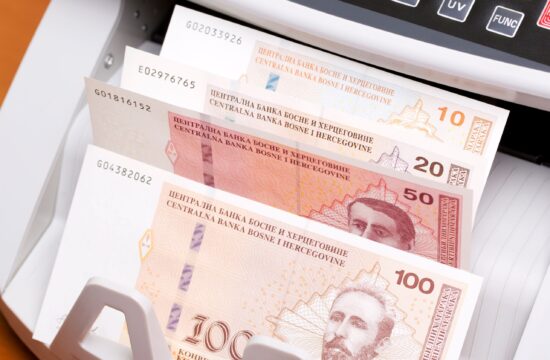
Croatian Prime Minister Andrej Plenkovic said on Wednesday his government would never put up barbed wire on the border with Bosnia and Herzegovina to stop illegal migrants because there were natural obstacles and that would be a bad political message to the neighbouring country.
He was speaking of migration at a meeting with foreign correspondents who arrived in Zagreb from Brussels on the occasion of Croatia's presidency of the European Union.
Some of our neighbouring EU member states have put up physical barricades and barbed wire. We haven't opted for that because we have natural barriers such as the Danube and the Sava rivers, mountains and forests, Plenkovic told a Dutch journalist when asked about the migrant policy Croatia would advocate during the presidency.
He said BiH was a neighbouring and friendly country with which Croatia shared many links and that barbed wire would not be a good political message for bilateral relations.
Addressing some 60 foreign journalists, Plenkovic said Croatians lived in many places on the other side of the border and that as prime minister he would never opt for building a barrier between Croatians.
He said it was necessary to stop illegal migration and reform the Dublin Regulation, adding that migration was the issue which, after the fall of the Berlin Wall, had changed the political mood in Europe the most.
A New York Times journalist asked if a country accused of beating and shooting at migrants, stealing from them and returning them from Zagreb to BiH could propose a reform of the migration policy.
Plenkovic said those were allegations, not facts, and that Croatia had opted for investing in police capabilities instead of barbed wire.
We are considering every humanitarian aspect. We have no proof of what you are saying, except two shooting incidents which occurred by accident inside Croatian territory. But that was accidental and it is not the official policy or the intention of the police, he said, adding that every complaint about the work of security forces was properly checked.
Responding to a question from a journalist of the UK's Telegraph, Plenkovic said Brexit was not a smart idea. Time has shown how complicated are the consequences of that decision by the then British Prime Minister David Cameron, he added.
A Wall Street Journal reporter asked if EU-US trade disputes would spill over onto the transatlantic alliance, to which Plenkovic replied that he believed there was a common sense on both sides of the ocean, enough to avoid an escalation of those disputes.
He said the UK's exit from the EU was the right time for the Conference on the Future of Europe, with which Democracy and Demography Commissioner Dubravka Suica of Croatia would be tasked.
Nuclear power and permanent member of the Security Council is leaving, and this is the moment for the EU to see what it must do to gain bigger support among its citizens, Plenkovic said.
As for countries which want to join the EU, he said that Croatia, as a country in this part of Europe, felt a responsibility for their European journey.
After talks with French President Emmanuel Macron on Tuesday, Plenkovic believes that France could change its opinion by the Zagreb summit on enlargement in May. Last October, France was the most vocal opponent to opening accession negotiations with North Macedonia and Albania.
He said Enlargement Commissioner Oliver Varhelyi was working on a document which could amend the accession negotiations methodology, which could satisfy France.
European Council President Charles Michel and the entire European Commission with Ursula von der Leyen at the helm is coming to Zagreb on Thursday.




